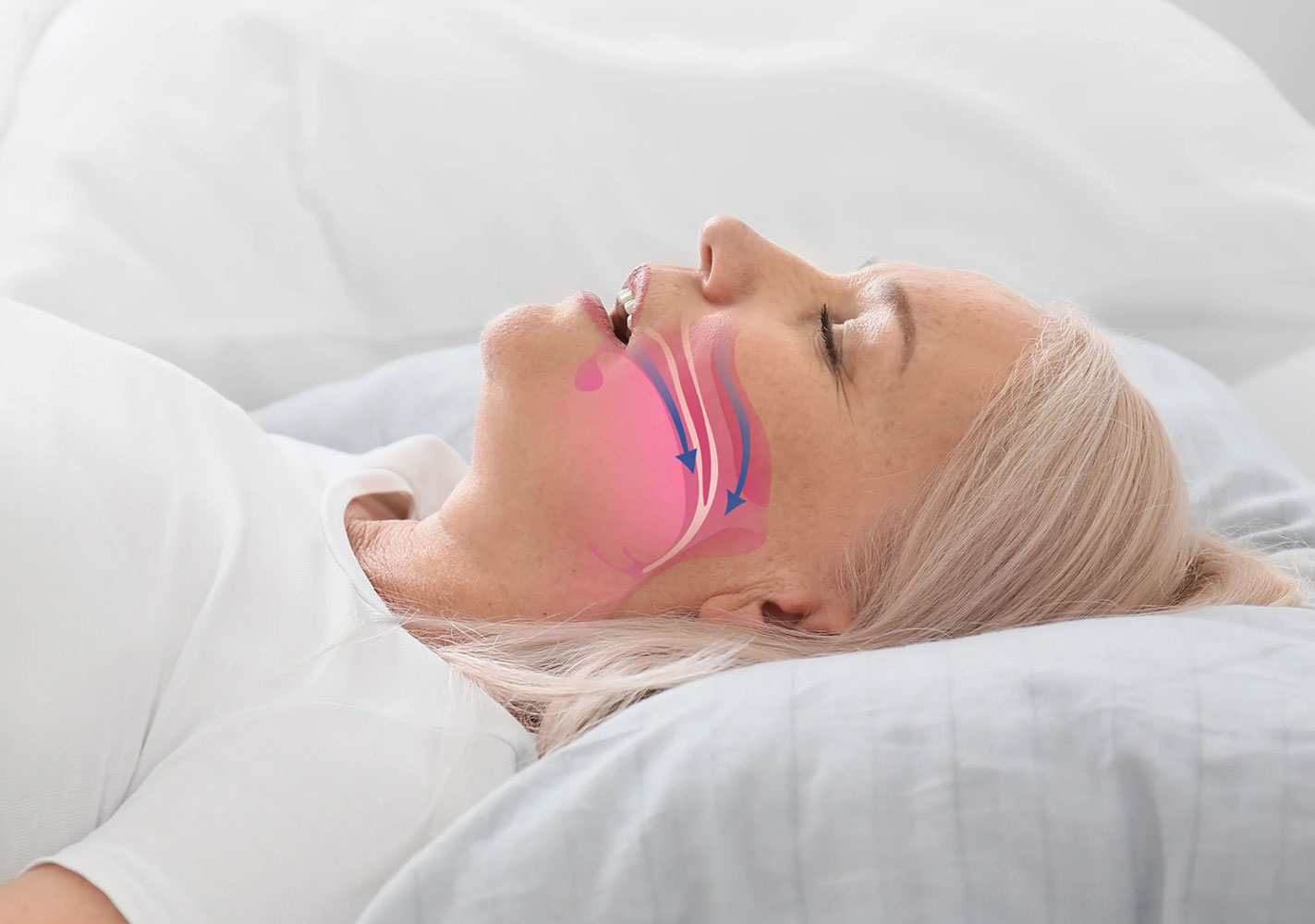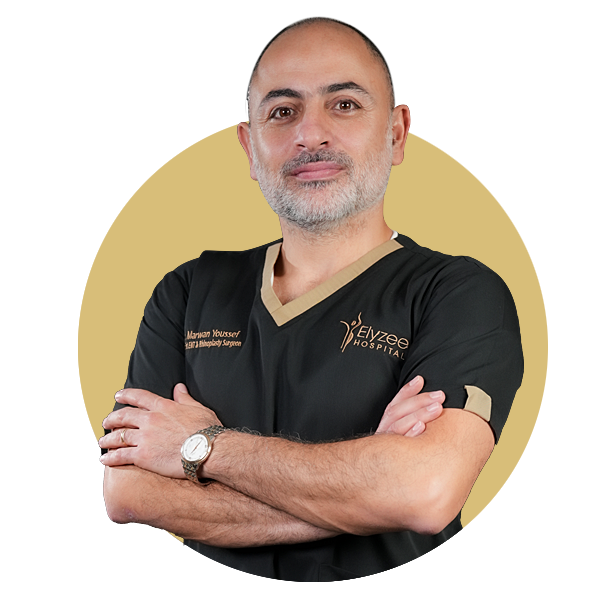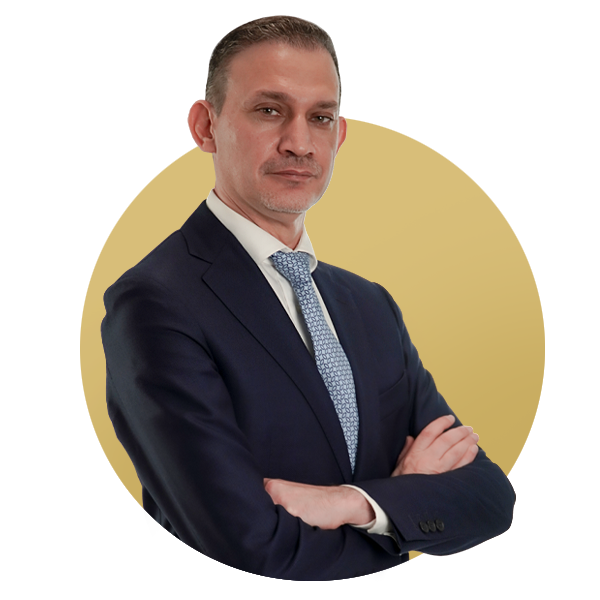Snoring Surgery at Elyzee Hospital, Abu Dhabi — Effective Solutions for Chronic Snoring
Chronic snoring can disturb sleep, lower daytime energy, and strain relationships. At Elyzee Hospital in Abu Dhabi our ENT specialists evaluate the root cause of snoring and offer targeted surgical and minimally invasive treatments — from septoplasty and turbinate reduction to uvulopalatopharyngoplasty (UPPP) and palatal implants — to restore airway function and improve sleep quality.
Why Consider Snoring Surgery?
- Improved sleep quality: Reducing airway obstruction improves breathing during sleep and reduces daytime fatigue.
- Reduced partner disturbance: Quieter nights improve sleep for both the patient and their partner.
- Treating underlying conditions: Surgery can address structural causes (deviated septum, enlarged turbinates, redundant soft palate tissue, nasal polyps) and reduce the risk or severity of obstructive sleep apnea (OSA).
- Long-term benefit: When chosen appropriately, surgical solutions deliver durable improvements in airway patency and symptom control.
Ideal Candidates
Good candidates for snoring surgery at Elyzee Hospital are adults whose snoring is due to identifiable anatomical problems (e.g., deviated septum, enlarged turbinates, floppy soft palate or uvula) and who have tried conservative treatments (CPAP, oral appliances, nasal sprays, weight loss) without sufficient relief. An ENT or sleep medicine evaluation, sometimes including sleep study (polysomnography) or nasal endoscopy, helps determine suitability.
Consultation & Preoperative Assessment
Your ENT specialist at Elyzee Hospital will:
- Review your medical and sleep history, medications, and prior treatments.
- Perform nasal and throat examination, including endoscopic assessment when needed.
- Recommend investigations (sleep study, CT or nasal endoscopy) if indicated.
- Discuss surgical options, expected benefits, risks, and realistic outcomes tailored to your anatomy and goals.
- Provide pre-op instructions (medication adjustments, smoking cessation, fasting guidelines).
Common Surgical Options
- Uvulopalatopharyngoplasty (UPPP): Trims or recontours portions of the soft palate and uvula to widen the oropharyngeal airway and reduce tissue vibration.
- Septoplasty: Straightens a deviated septum to improve nasal airflow (often combined with other procedures).
- Turbinate reduction: Reduces enlarged turbinates (by radiofrequency, coblation, or partial resection) to relieve nasal obstruction.
- Palatal implants / pillar procedure: Small implants inserted into the soft palate to stiffen the tissue and decrease vibration in selected patients.
- Combined or tailored approaches: Many patients benefit from combined procedures (e.g., septoplasty + turbinate reduction + UPPP) for optimal airway improvement.
What Happens During Surgery
Procedures are performed under general anesthesia or local anesthesia with sedation depending on the technique and patient preference. The surgeon makes precise adjustments to nasal or pharyngeal tissues to open the airway and reduce fluttering tissues that cause snoring. Operative time varies by procedure and combination of techniques.
Recovery & Aftercare
- Expect throat soreness, mild pain, nasal congestion, or swelling for several days to a couple of weeks.
- Pain is typically controlled with prescribed analgesics; cold fluids and soft diet ease discomfort after palatal procedures.
- Use saline nasal rinses, nasal sprays, and follow wound-care instructions as advised by your Elyzee ENT team.
- Most patients return to light activities within 1–2 weeks; full recovery and the maximal effect on snoring may take several weeks as swelling resolves.
- Follow-up appointments assess healing, airway patency, and symptom improvement; additional therapy (sleep study or CPAP) may be advised if OSA persists.
Expected Results & Limitations
Many patients experience significant reduction in snoring and improved sleep quality after correctly targeted surgery. Outcomes depend on accurate identification of the snoring source, overall health, and adherence to post-op care. In cases of severe obstructive sleep apnea, surgery may reduce symptoms but might not fully replace CPAP therapy; your Elyzee ENT specialist will explain realistic expectations.
Risks & Considerations
All surgeries carry risks: bleeding, infection, persistent symptoms, voice changes, swallowing difficulties, or the need for revision. Careful patient selection, experienced surgeons, and accredited operating facilities at Elyzee Hospital minimize risks and optimize safety.
Why Choose Elyzee Hospital?
- Experienced ENT & sleep medicine team: Multidisciplinary care to diagnose and treat snoring and sleep-disordered breathing.
- Individualised treatment plans: Procedures chosen based on detailed nasal and airway assessment for best outcomes.
- Modern surgical and endoscopic techniques: Minimally invasive options and accredited surgical environment in Abu Dhabi.
- Comprehensive follow-up: Postoperative monitoring and sleep testing to confirm improvement and guide further management.
Book a Consultation
To find out which snoring solution is best for you, schedule a private consultation with the ENT and sleep team at Elyzee Hospital, Abu Dhabi. We’ll evaluate your condition and recommend a personalized plan to help you and your partner sleep better.















